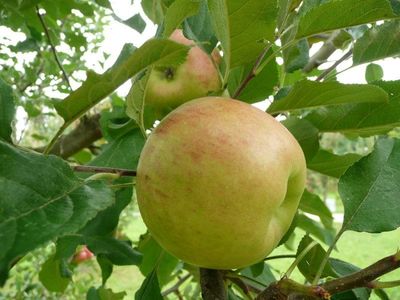What is a Topaz Apple?
Developed at the Czech Republic’s Institute of Experimental Botany, Topaz apples are crispy, medium to large apples with a distinctive, sweet-tart flavor often compared to Honeycrisp. Topaz apples are usually eaten fresh or in fruit salads, but they can also be used for cooking or baking. Growing Topaz apples isn’t difficult, and the trees tend to be resistant to most apple diseases. Topaz apple harvest occurs late in the season, usually from mid-October to November.
How to Grow Topaz Apples
Topaz apples are suitable for growing in USDA plant hardiness zones 4 through 8. Like all apple trees, Topaz apples require at least six to eight hours of sunlight per day. Plant Topaz apple trees in moderately rich, well-drained soil. The trees may struggle in rocky soil, clay, or sand. If your soil is poor, improve growing conditions by digging in generous amounts of organic material such as compost, shredded leaves, or well-rotted manure. Work the material into the soil to a depth of at least 12 to 18 inches (30.5-45.5 cm.). Topaz apple care includes regular watering. Water young apple trees deeply 7 to 10 days during warm, dry weather. Normal rainfall usually provides sufficient moisture after the tree is established, generally after the first year. Never overwater a Topaz apple tree. It’s better to keep the soil slightly dry rather than too wet. Don’t add fertilizer to the soil at planting time. Instead, feed Topaz apples trees with a good balanced fertilizer when the tree begins bearing fruit, usually after two to four years. Never fertilize Topaz apple trees after July; feeding apple trees so late in the season produces tender, new growth that may be nipped by frost. Thin excess fruit to ensure healthier, better-tasting fruit. Prune the trees in late fall, after Topaz apple harvest is complete.
